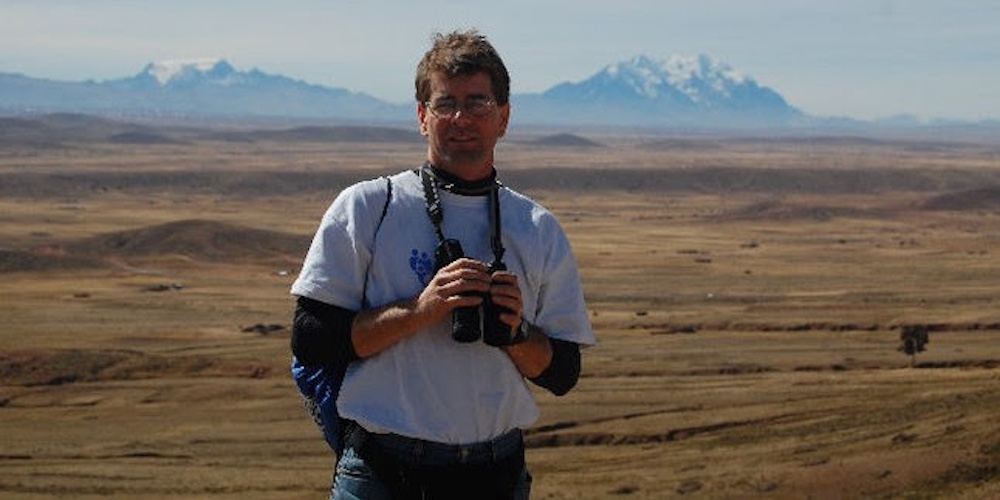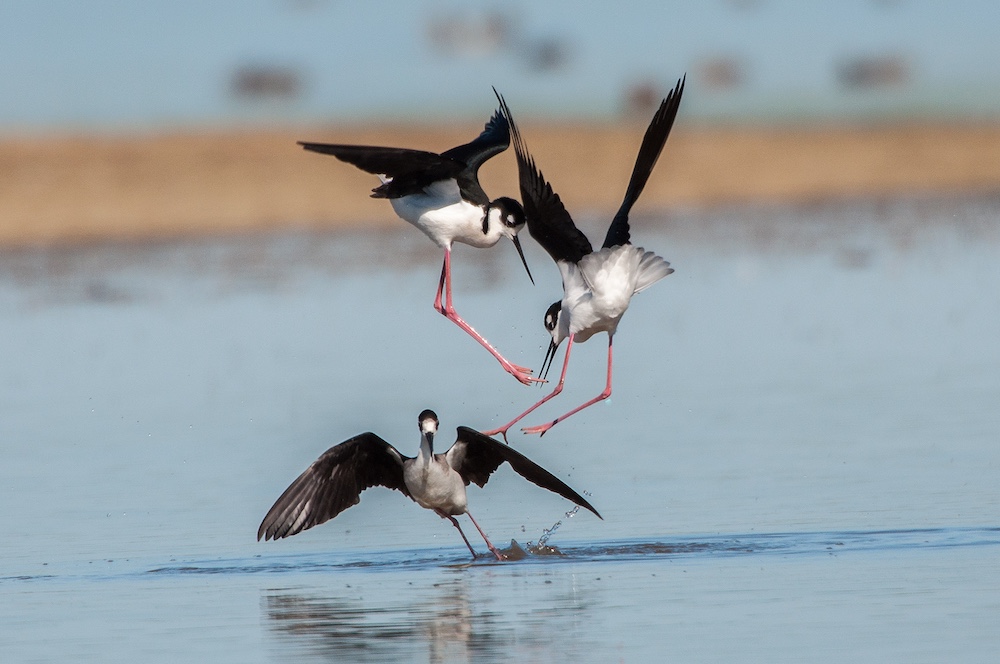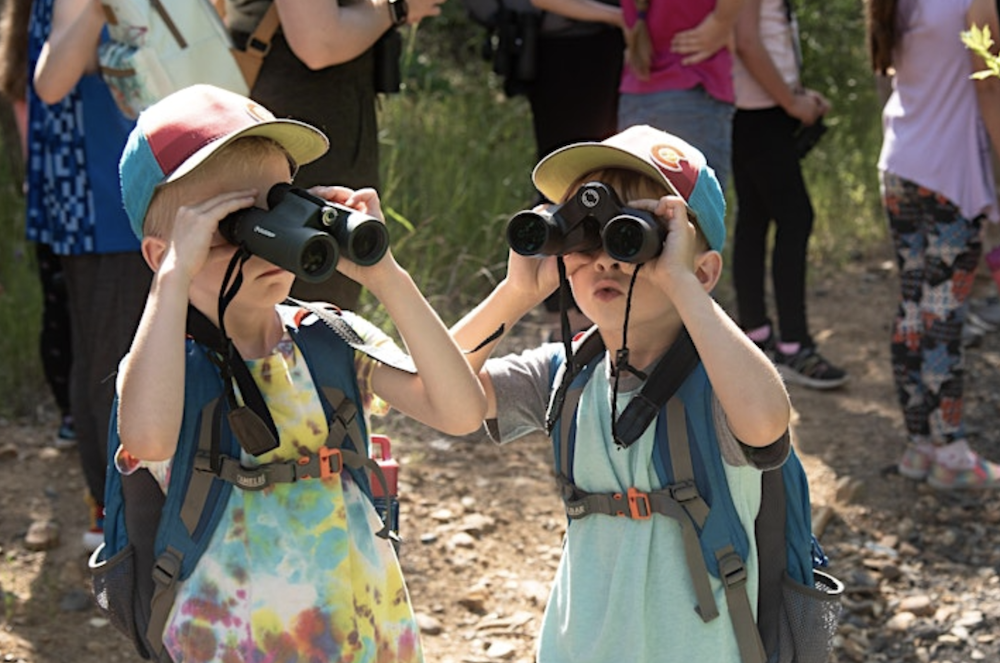
We have a couple of great presenters for you this month, Dan Bye and Julie Doerr. Also, make sure you get your photos submitted by Tuesday, March 4th. Submit up to three images HERE!
Hogsback Road (West End), Red Bluff, Ca (Our Diamond in the Rough) – Daniel Bye began his interest in birdwatching while attending Natural Resource courses at Shasta College in 1980. New knowledge on field studies and field trips really sparked a tremendous appreciation of the natural world and created a great respect for the world of birds and the vital role they play in all ecosystems. He would make time for birding through the 90’s which was challenging while raising a family and keeping pace with his career. A few years after Y2K, and a move to Red Bluff provided more freedom to pick up that pace to become a better birder. The goal was always the same, find great locations to make observations, and pay attention to each species behavior, habits, habitat, and zero in on a proper identification.
In 2014, Daniel discovered Merlin and eBird, two applications developed by Cornell Ornithology Labs. It was a gamechanger and an easy path to becoming an eBirder. These apps opened a huge opportunity to advance more into Citizen Science. Photography has always been an extension to birding. Daniel started out with a digiscope setup, which works great when your subject is willing to sit still long enough to position a scope and mount a smart phone with an adapter to snap photos. Eventually it was time to upgrade to digital photography. The learning curve has been long but a camera is a great tool to a birder when the subject is just a little out of reach and when you need an advantage on that positive ID. The world of photography is a great forum of enjoyment when the subject you have photographed is poised in nature in a way it was intended to be seen.
A Chance Encounter with a Wandering White Wagtail – In October 2024 Julie was birding in Humboldt County and came upon a White Wagtail. Her presentation will cover the discovery and identification of the Wagtail, birding strategies and tools used, the power of social media, lessons learned about birding etiquette, and an introduction to the Humboldt area birding community.
Shasta Birding Society is inviting you to a scheduled hybrid Zoom meeting.
Topic: Shasta Birding Society Photo Contest
Time: Mar 12, 2025 07:00 PM Pacific Time (US and Canada)
Join Zoom Meeting
https://us06web.zoom.us/j/88053018239
Meeting ID: 880 5301 8239
—
One tap mobile
+16699006833,,88053018239# US (San Jose)
+16694449171,,88053018239# US
—
Dial by your location
• +1 669 900 6833 US (San Jose)
• +1 669 444 9171 US
• +1 253 215 8782 US (Tacoma)
• +1 346 248 7799 US (Houston)
• +1 719 359 4580 US
• +1 253 205 0468 US
• +1 305 224 1968 US
• +1 309 205 3325 US
• +1 312 626 6799 US (Chicago)
• +1 360 209 5623 US
• +1 386 347 5053 US
• +1 507 473 4847 US
• +1 564 217 2000 US
• +1 646 931 3860 US
• +1 689 278 1000 US
• +1 929 205 6099 US (New York)
• +1 301 715 8592 US (Washington DC)
Meeting ID: 880 5301 8239
Find your local number: https://us06web.zoom.us/u/k4r6XK9S6


Join us on Zoom for Steve Hampton’s timely presentation about birds and climate change: the changes that are already happening, with a special focus on Northern California.
Birds are responding to climate change, and have been since the mid-1980s. It has only become clear recently. What started as a little bump in the data is now clearly the start of a massive exponential curve. Lesser Goldfinches and California Scrub-jays, among many others, are invading the Pacific Northwest. Anna’s Hummingbirds are over-wintering in Alaska. All booby species have been removed from California’s review list. And Western Tanagers are now regular in winter in increasing numbers. At the same time, Wrentits and Oak Titmice are going nowhere. The world of Ivory Gulls and Black Guillemots is melting. Birds are evacuating from the Mojave Desert and literally shrinking, physically, from the Amazon to North America to the Middle East.
The world is changing so fast, and birds with it, that papers are outdated by the time they are published. But the main themes are the same:
- Many birds are responding quickly to rapid climate change.
- Some are not.
- Birds, as a kingdom, like warm weather, and did very well during the last major global warming event 55 million years ago.
- At the species level, there will be winners and losers.
Steve Hampton has been birding since he was 7 years old. He lived in Davis for 30 years and worked for California Dept of Fish and Wildlife much of that time, where he was involved in oil spill response, natural resource damage assessment, seabird restoration, and partnerships with Native communities. He writes regularly for Birding magazine, recently served on the American Ornithological Society’s Ad-hoc Committee on English Bird Names, and currently resides in Port Townsend, where he serves as the conservation chair and CBC compiler for Rainshadow Bird Alliance. He combines his love of birds with a PhD in resource economics to analyze bird data. His article in the December 2022 issue of Birding summarized the recent research on birds and climate change. He will present that information, with a special focus on Northern California.
Use this link to join us on January 21. We will begin the presentation at around 7 pm.
https://us02web.zoom.us/j/88126899921?pwd=4oj2pHk0MEoVcX8j1fkHTDv7yw9OTz.1

Join us for an evening of bird photography from your webmaster, Larry Jordan. Larry joined the Wintu Audubon Society as its webmaster back in May 2008. At the time he had been posting on his own blog, The Birders Report, for about a year, using photos from other photographers (with their permission, of course). Over the years he has created quite a collection of bird photos, several (such as the photo above) taken from the photo blinds available at the Colusa, Delevan, and Sacramento National Wildlife Refuges. Of course several of his photos are taken during our many outings throughout the year as well.
Shasta Birding Society is inviting you to a scheduled Zoom meeting.
Topic: Some of My Favorite Bird Photos
Time: Dec 11, 2024 07:00 PM Pacific Time (US and Canada)
Join Zoom Meeting
https://us06web.zoom.us/j/81721568249
Meeting ID: 817 2156 8249
—
One tap mobile
+12532158782,,81721568249# US (Tacoma)
+12532050468,,81721568249# US
—
Dial by your location
• +1 253 215 8782 US (Tacoma)
• +1 253 205 0468 US
• +1 719 359 4580 US
• +1 346 248 7799 US (Houston)
• +1 669 444 9171 US
• +1 669 900 6833 US (San Jose)
• +1 689 278 1000 US
• +1 929 205 6099 US (New York)
• +1 301 715 8592 US (Washington DC)
• +1 305 224 1968 US
• +1 309 205 3325 US
• +1 312 626 6799 US (Chicago)
• +1 360 209 5623 US
• +1 386 347 5053 US
• +1 507 473 4847 US
• +1 564 217 2000 US
• +1 646 931 3860 US
Meeting ID: 817 2156 8249
Find your local number: https://us06web.zoom.us/u/kcd5SfsfrJ

Young nature lovers can enjoy a spring morning learning about our flying feathered friends and creepy, crawling critters! Learn about the incredible bird species present at the Shasta Land Trust’s Sacramento River property with a walking bird tour led by the Shasta Birding Society. Kids will learn tips to ID birds with a hands-on bird watching lesson. You’ll also get a chance to see and learn about a variety of unique geckos, lizards, and other reptilian critters! Binoculars will be available to borrow from the Shasta Birding Society. Kids snacks and beverages will also be provided. This free event is best geared for children ages 5-12.
To register your child, go to https://www.eventbrite.com/e/crawling-critters-feathered-friends-tickets-852588153117






